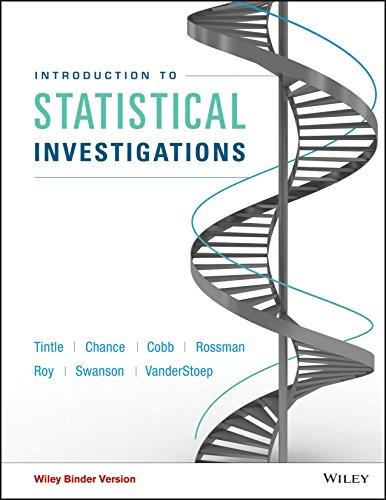Do people tend to spend money differently based on perceived changes in wealth? In a study conducted
Question:
Do people tend to spend money differently based on perceived changes in wealth? In a study conducted by Epley et al. (2006), 47 Harvard undergraduates were randomly assigned to receive either a “bonus” check of $50 or a “rebate” check of $50. A week later, each student was contacted and asked whether they had spent any of that money, and if yes, how much. In this exercise we will focus on how much money they recalled spending when contacted a week later. It turned out that those in the “bonus” group spent an average of about $22, compared to $10 in the “rebate” group.
a. Identify the observational units.
b. Identify the explanatory and response variables. Identify each as either categorical or quantitative.
c. State the appropriate null and alternative hypotheses in the context of the study.
d. In the article that appeared in the Journal of Behavioral Decision Making, the researchers reported neither the sample size nor the sample SD of each group. In this exercise you will explore whether and how the strength of evidence is impacted by the sample size and sample SD. Complete the following table by finding the t-statistic and a p-value for a theory-based test of significance comparing two means under each of the four different scenarios.
e. Summarize what your analysis has revealed about the eff ects of the sample size breakdown and the sample standard deviations on the values of the t-statistic and p value.
Step by Step Answer:

Introduction To Statistical Investigations
ISBN: 9781118172148
1st Edition
Authors: Beth L.Chance, George W.Cobb, Allan J.Rossman Nathan Tintle, Todd Swanson Soma Roy





